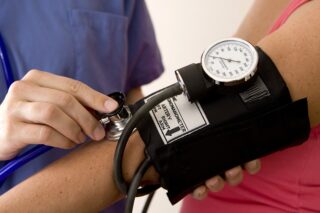
Atrial fibrillation is known as a silent killer. That’s because the signs and symptoms aren’t always obvious—or they can be confused with something else. After age 55, individuals have a one-in-three lifetime risk of developing AFib, so it’s important to learn how you can tell if you might have it.
This is a condition that increases your risk for stroke by 500% while doubling the risk for death due to heart-related issues. Read below to learn more about the signs and symptoms so you can recognize when it’s time to go to an electrophysiologist (EP doctor) and discuss treatment options.
Signs & Symptoms of AFib
Symptoms of atrial fibrillation are not always easy to spot, and even then, might not all be attributed to AFib. Here is a guide that explains the signs and symptoms in depth.
One symptom is heart palpitations (abnormal heart rhythms or when the heart beats too fast). Another sign is shortness of breath (dyspnea), although this can also be caused by asthma or other respiratory diseases. Patients with AFib may also experience fatigue and pain around the chest. If you display any of those signs, especially if more than one appears together, you should see your doctor.
Who is at Risk for AFib?
Not everyone with AFib displays the signs and symptoms—and sometimes these symptoms can be deceptive. That’s why it’s important to understand the risk factors. If any of these factors apply to you, you are at higher risk of atrial fibrillation.
- Aging is a factor, with the number of individuals with AFib increasing as people get older.
- High blood pressure increases risk.
- Heart disease increases risk, including heart attack, coronary syndrome, valve problems and cardiomyopathy.
- Excessive alcohol consumption can raise your risk.
- Sleep apnea, thyroid disorders, diabetes and other chronic conditions can increase risk.
- Athletes are at risk for a rapid heart rate called “supraventricular tachycardia,” which elevates the risk for AFib.
- Family history of AFib also increases your risk.
It is important to tell your doctor if you have any of these risk factors to assist with diagnosis.
Diagnosing AFib
There are several ways of diagnosing AFib, some that can even be done in your own home. One early diagnosis is simply checking your pulse. AFib can present as an irregular heartbeat or the heart beating too fast. Count the beats of your heart compared with a healthy heart rate to see if there are any erratic differences.
It is recommended that regardless of at-home checkups, you visit your electrophysiologist or other healthcare professional in order to consult their judgement on your personal health. Some other diagnosing methods they may employ are ECg, Holter monitors, and echocardiograms.
If you think you may have AFib, would like more information, or know a loved one who may be at risk, schedule an appointment with Heart Rhythm Consultants in the Tampa Bay and Sarasota area. Our experienced team always stands ready to assist you in any questions about your heart health. Speak with a care coordinator today.



